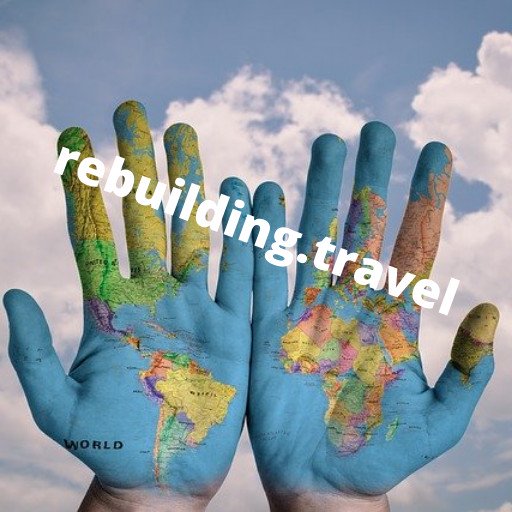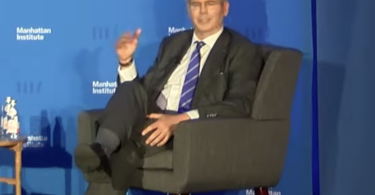Generation C are all of us in the travel and tourism industry and the traveling public. Generation C is the generation or visitors after COVID-19. All of us have an interest in rebuilding.travel.
The only 2-week young grassroots movement rebuilding.travel is already a trendsetter in 85 countries with top leaders in the private and public sector, and stakeholders of all sizes joining in.
At the Caribbean Tourism Organization UK meeting last week, Jamaica’s minister of tourism branded this new Generation C definition, Rebuilding.travel adopted Generation C is a grassroots movement. Rebuilding.travel was formed by the International Coalition of Tourism Partners and inspired by Project Hope organized by the African Tourism Board.
Within one week organizations, including SKAL International, ETOA, representatives from WTTC, the Global Tourism Resilience and Crisis Management Center, current and former ministers of tourism, heads of tourism boards, a Royal Highness from Saudi Arabia, the head of the Global Tourism Resilience and Crisis Management Center, the founder of the International Institute for Peace Through Tourism, leaders from the safety and security field, executives from the hospitality, cruise, and aviation industry. Personalities in research, consulting, PR and marketing, universities, and news publications are coming together to rebuild.travel.
Rebuilding.travel has now supporters in 85 countries. This is before one dime was invested and before a clear structure was developed. The travel and tourism world is hungry if not desperate for communication, cooperation, and a “make sense approach” to preserve the human right of travel.
The founder, ICTP Chairman Juergen Steinmetz, who is also the founding chair of the African Tourism Board and president of the Travel News Group, said: “I am very humbled to see such a fantastic response. Bringing such brilliant leaders together to brainstorm and discuss the future of our industry is a necessary conversation we need to have now.”
Rebuilding Travel held its first high-level virtual Zoom meeting last Thursday, April 30, 2020
Dr. Taleb Rifai, former Secretary-General of the World Tourism Organization (UNWTO), explained that the efforts of the foundation of Project Hope in Africa he also chairs, are to rebuild travel in two phases: Containment and Recovery. Containment is the initial response to a crisis, and Recovery deals with the realities of issues such as unemployment and economic downturn. Taleb said tourism is nothing without travel and that there are 4 platforms to bring tourism back:
- Domestic Tourism: Emphasizing domestic tourism is a matter of principle – to enjoy your own country first before asking others to come to visit.
- Digital Technology: Adjusting to attending events from home in a virtual meeting space as well as social activities like concerts.
- Training and Rehabilitation: Requalifying workers into changed positions, such as training a waiter how to package food for delivery.
- Economic Revitalization: Government must inject money into the hands of people so spending can commence.
Dr. Rifai added that special arrangements may need to be taken into consideration. They include, corona-free zones like beaches and geographic districts where the country has prepared to receive visitors where they will feel safe.
Alain St.Ange, the former Minister of Tourism of Seychelles, and president of the African Tourism Organization spoke about Project Hope for Africa. He said that in addition to Domestic Tourism, Regional Tourism must be addressed. Seychelles believes because the country is small, they have seen the peak of COVID-19. Their size has allowed them to trace the movement of people which allows them to help and advise in forums such as this. He said that virtual areas will become more important, and while it is more difficult to work with, it is do-able.
Steinmetz stated that the current Seychelles President said they are ready to open the airport with mainly cargo flights and private jets arriving at first and larger airlines coming later. The airport must then assure that people arriving are processed through a strict screening. As far as cruises, this will follow suit like the airlines, with smaller yachts first allowed to come to the islands. Tourism source markets, however, are still under lockdown.
Vijay Poonoosamy, Singapore-based Director International and Public Affairs of the QI Group, and former VP of Etihad Airways, commended this Rebuilding Travel initiative, citing it as having critical value for the travel and tourism industry. He said it will not be the same world – we are already living in the new normal. Airlines and cruises are the most affected. Airlines that are well run are facing challenges as airlines that are not well run are filing for bankruptcy. The question that must be answered is how do we help the airlines to reshape and survive? Emphasis on domestic and regional tourism will get the sector up and running.
Frank Haas, President of Marketing Management, Inc in Hawaii said that Hawaii and other destinations had gone from over-tourism to tourism recovery, and the tool to respond to this will be through technology. He shared that an article he wrote, “Can Hawaii Rise from the Ashes of COVID-19 as a Smart Destination?” can help shed light on this topic. Frank said as an island state, mostly everyone comes in by air which brings with it the potential for visitors to bring the virus. Technology is going to be important in responding to how we screen for arrivals. For Hawaii where tourism is 17% of the GDP, using technology to manage tourism will be the new normal.
Pankaj Pradhanan, Director of Four Season Travel and Tours and a member of Toastmasters, shared that in 2015, his country suffered the catastrophic events of a major earthquake. This was a big blow, and the travel and tourism industry was looking to 2020 as the start of a new beginning. A virtual meeting was held by Toastmasters with 173 participants from 14 countries. The outcome of that meeting was this message: We will not stop, and we will not give up. We must move from competition to cooperation, from a new normal to a sustainable normal. Frank said Nepal is working to make tourism for all, not just his country’s traditional market geared towards adventure tourism. He said they must invest in reinventing the tourism aim so that everyone will come to visit, and tourism will stay afloat.
Dr. Peter Tarlow, President of Safertourism shared that he is involved with tourism security, safety, health, and well-being, and this initiative will bring us all together to achieve surety which brings safety, security, and economic development together. However, tourism will not revive when people are scared. When people are scared, they will not travel. He said that we need standard definitions, so everyone understands the data of the situation. The tourism industry has often said that what we need to do is to go from getting to giving. We understand marketing and customer service, and now we need to respond economically.
In risk management, we cannot over-promise what we can deliver. We will never achieve 100% safety and security, but we can make a targeted leap. Technology can only go so far. Hospitality means to take care of, and tourism cannot have a relationship with a machine. We must utilize technology without taking out humanity. We are not working with a new normal, we are working with the next normal – plural – and learning how to live in a world of abnormalities. Flexibility, understanding, safety, and security all interact to achieve good industry health. We must assure future travelers not to be afraid of potential crime in the US which is the usual outcome of poverty. There are over 30 million in America that are unemployed, and in 3 months, we have gone from a strong economy to deflation. The word hospitality comes from the hospital. In tourism, we take care of the soul in the same way that hospitals take care of the body.
Lefteris Sergidis, Owner of Travelbook Group, explained that Travel Group is made up of 150 hotels in Africa and that they have witnessed the drop in reservations which will be difficult to come back from. He is working online with channels such as Expedia on what will happen the day after. For hotels to reopen, flights must come in, which demonstrates how everything is interlinked. Countries are opening, but flights are not there yet.
Cuthbert Ncube, Chairman African Tourism Board, began by saying that he appreciated this Rebuilding Travel initiative to stand like a lighthouse in the COVID-19 storm. He said that we need to form strong marketing views for destinations to prepare for the rebound forces that will unite us and that they are greater than the influence that keeps us apart. Cuthbert said we must break down the psychological walls that keep us separated.
Walter Mzembi, former Zimbabwe Minister of Foreign Affairs, and Minister of Tourism and Hospitality Industry, shared that we need to agree on a new protocol in tourism’s golden book. He sent a letter to the ministers of tourism sharing that by being productive from home we can keep tourism alive for the future.
Louis D’Amore, President & Founder of the International Institute for Peace Through Tourism (IIPT), said he appreciated how Rebuilding Travel is bringing good people together with good ideas. He said that young people are showing creativity, and we need to reach out to them, even into the universities, to help develop initiatives.
Felicity Thomlinson of Typsy based in Sydney, Australia, shared a presentation on her company which is an online learning platform to educate and help the hospitality sector globally. She shared that her company is providing free subscriptions until September 30 of this year as they believe that it is important to support the hospitality sector during this time. Felicity said it is the hospitality we provide others that defines us. The courses are available in many languages and if the language one wants is not listed, you are encouraged to contact her so they can work on adding it. After the free period, individuals have the option to sign up for various subscription options if they choose.
The Hon. Edmund Bartlett, Minister of Tourism Jamaica, had planned on participating in this event, however, he got stuck in parliament. He had intended to speak about Generation-C. An article about this can be read on eturbonews.com. He also wanted to talk about the Global Tourism Resilience & Crisis Management Centre.
Dr. Taleb Rifai shared this information on the Minister’s behalf: The Tourism Resilience Center was set up by Mr. Bartlett to respond to crises and began after hurricanes devastated the Caribbean. There are 5 levels of crises identified: natural disasters, pandemics, terrorism, economical disasters, and political disasters. Three things the Centre does is maintain a database to collect crisis information, work on preparedness, and communicate about recovery.
Professor Lloyd Walle, head of GTRCM for the University of East Indies in Jamaica shared that in the past 2 years, 15 projects were handled by the Centre for private entities, government, and the medical field. They have opened a social media portal providing information about the virus and opportunities.
Support continued to flow through this initial meeting with participants taking turns to talk about this Rebuilding Travel initiative. Dov Kalmann, CEO of Pita Marketing in Tel Aviv, Israel said it is not just the industry fighting for survival, but that we have to keep the dream alive and change that dream and from that new dream we can create hope. Dov represents Seychelles and Thailand in Israel
Arwin Sharma of Odyssea Globale Ltd in Malaysia shared that he would spread the word about this new initiative in the Indian Ocean Region.
Ivan Dodig, a journalist, and member of the FIJET Digital Communication Board Member from Bosnia Herzegovina said it is needful in these current times. He was pleased journalists are part of this initiative.
Daniel Milks, the owner of myXOadventures.com – a tour operator in Florida, said he made many notes and was grateful for the good ideas.
Giovanna Tosetto, a travel professional from Northern Italy explained how her business and regions are affected by the virus.
Former minister of Tourism Jamel Gamra shared his vision for tourism after COVID 19, Tunisia. He has insight also on the situation of the cruise industry.
David Vime, Maestros Hoteleros a Spanish company managing hotels in Spain and Egypt had his own prediction.
Denise Aleong-Thomas, a small tourism accommodation owner in Trinidad & Tobago shared her worries.
It is clear from the sheer length of this initial 2 ½ hour virtual meeting that everyone is hungry for information, has ideas to share, and is ready to move forward. Participants said they were looking forward to upcoming sessions.
Juergen Steinmetz asked everyone to include hashtag #rebuildingtravel and spread the word so more can join at www.rebuilding.travel/register
The movement is setting up a communication platform within buzz.travel, a new social media platform for the global travel and tourism industry to communicate.’







